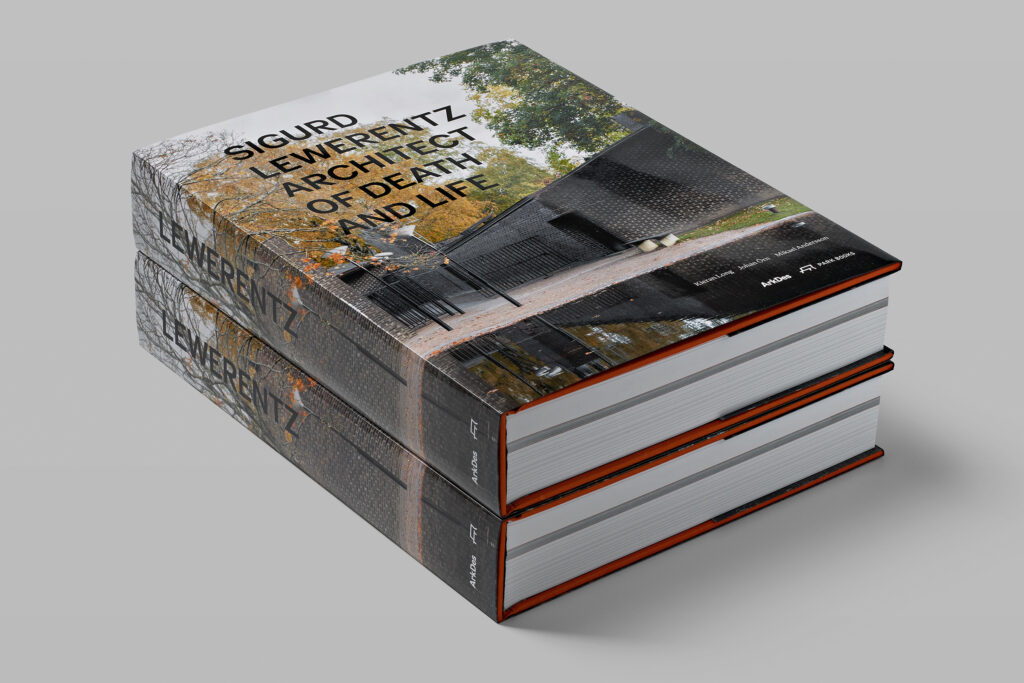Sigurd Lewerentz’s Collection
:blur(9)/https%3A%2F%2Farkdes.se%2Fwp-content%2Fuploads%2F2024%2F08%2FSigurd-Lewerentz.jpg)
The Sigurd Lewerentz collection comprises over 13,000 items. Since 1973, ArkDes has preserved the esteemed architect’s sketches, drawings, letters, and photographs.
The collection offers a unique opportunity to explore the architect behind landmark buildings such as The Resurrection Chapel at the Woodland Cemetery in Stockholm and St Peter’s Church in Klippan, offering insight into the creative process that led to his groundbreaking architecture, as well as glimpses of visions and ideas that were never realized.
The collection spans Sigurd Lewerentz’s entire career—from the logo for the Stockholm Exhibition of 1930 to his final work: the flower kiosk at the Eastern Cemetery in Malmö, completed in 1969. Beyond drawings and building sketches, the collection also includes travel photographs of ancient pavements and illustrations of Egyptian mythology. Together, these objects paint a portrait of a curious architect and artist, equally fascinated by solemn buildings for death, luxury shopping, and the design possibilities of modern urban life.
-
The Resurrection Chapel, elevation studie of portico, Stockholm. Ca 1925. Sigurd Lewerentz. ArkDes collection.
:blur(9)/https%3A%2F%2Farkdes.se%2Fwp-content%2Fuploads%2F2024%2F12%2FARKM.1973-103_084-021-2.jpg)
:blur(9)/https%3A%2F%2Farkdes.se%2Fwp-content%2Fuploads%2F2024%2F12%2FARKM.1973-05-05015-scaled.jpg)
The exhibition Sigurd Lewerentz: Architect of Death and Life, presented at ArkDes from 2021 to 2022, emerged from four years of in-depth research. It was part of a larger project that also included a comprehensive 700-page monograph of the same name. By opening the entire collection to the public, ArkDes brought forward a multifaceted figure whose work encompassed far more than churches and cemeteries. Lewerentz’s contributions to industrial design, graphic arts, and exclusive retail spaces showcased his diverse creative range The research also highlighted Lewerentz’s close collaborations with some of the 20th century’s most prominent architects and artists, such as Gunnar Asplund, David Helldén, Erik Lallerstedt, Barbro and Robert Nilsson, and Sven “X:et” Erixson.
As part of the exhibition, ArkDes hosted a symposium that brought together researchers from around the world. The aim was to create a forum for sharing knowledge and generating new perspectives on Lewerentz and his work. The symposium also sought to expand the scope of research and establish collaborations that would continue long after the exhibition closed. Additionally, a digital platform was launched, allowing both researchers and the public to explore one of 20th-century architecture’s most influential figures in greater depth.
-
:blur(9)/https%3A%2F%2Farkdes.se%2Fwp-content%2Fuploads%2F2024%2F12%2FARKM.1986-220-21-scaled.jpg)
Display type. Sigurd Lewerentz. ArkDes collection. -
Door fittings. Ca 1950. Sigurd Lewerentz. Photographer: Ateljé Price. ArkDes collection.
:blur(9)/https%3A%2F%2Farkdes.se%2Fwp-content%2Fuploads%2F2024%2F12%2FARKM.1973-05-05020.jpg)
:blur(9)/https%3A%2F%2Farkdes.se%2Fwp-content%2Fuploads%2F2024%2F12%2FARKM.1973-05-02525.jpg)
Publikation: Sigurd Lewerentz: Architect of Death and Life
In connection with the exhibition Sigurd Lewerentz: Architect of Death and Life, ArkDes presented a major new biographical monograph – the life story of one of Sweden’s most important architects and the first ever published with full access to Lewerentz’s archive in Stockholm.
Designed by award-winning graphic designer Malmsten Hellberg ↗, Sigurd Lewerentz: Architect of Death and Life contains 700 pages of analysis, drawings, models, photographs by Johan Dehlin ↗, plus excerpts from Lewerentz’s personal archive and library. The book is available in both English ↗ and Swedish ↗.

:blur(9)/https%3A%2F%2Farkdes.se%2Fwp-content%2Fuploads%2F2024%2F12%2FARKM.1973-103-068-01.jpg)
Interested in exploring even more of Sigurd Lewerentz’s collection?
During the creation of the exhibition Sigurd Lewerentz: Architect of Death and Life (2021–2022), a digital collection page was developed. Here, you can delve into photographs, sketches, and designs that provide deeper insight into his vision and creative process.
:blur(9)/https%3A%2F%2Farkdes.se%2Fwp-content%2Fuploads%2F2024%2F12%2FARKM.1973-103-527.tif)
:blur(9)/https%3A%2F%2Farkdes.se%2Fwp-content%2Fuploads%2F2024%2F12%2FARKM.13-1.tif)
Lewerentz Symposium
Relive a public symposium held at ArkDes on the 23rd of August 2022 in connection to the exhibition. Click the link to watch the symposium ↗.
Participants: Wilfried Wang, Caroline Constant, Matthew Hall, Karin Björkquist, Sven Blume, Carlotta Torricelli, Patrick Lynch, Eireen Schreurs, Caroline Voet with Kieran Long and Max Ahrent.
00.00.07 Introduction and opening remarks by Kieran Long and Max Ahrent
00.07.24 i.e.
Speaker: Wilfried Wang
00.50.09 Lewerentz, landscape, and cemetery design
Speaker: Caroline Constant
01.31.10 Lewerentz: Fluctuations
Speaker: Matthew Hall
02.19.50-03.00.49 Lewerentz through the camera lens (panel discussion)
Speaker: Karin Björkquist and Sven Blume
Moderator: Max Ahrent
03.02.02 Anachronism as Avant-Garde. The Chapel of the Resurrection by Sigurd Lewerentz
Speaker: Carlotta Torricelli
03.46.09 Physic Realities: Sigurd Lewerentz and the Deep Time of Architecture
Speaker: Patrick Lynch
04.43.54 Actualising History. Retracing Lewerentz’s Sketches
Speaker: Caroline Voet
05.22.05 Closing remarks by Kieran Long

:blur(9)/https%3A%2F%2Farkdes.se%2Fwp-content%2Fuploads%2F2024%2F12%2FARKM.1973-05-8687.tif)
:blur(9)/https%3A%2F%2Farkdes.se%2Fwp-content%2Fuploads%2F2024%2F12%2FARKM.1985-104-0042.tif)
:blur(9)/https%3A%2F%2Farkdes.se%2Fwp-content%2Fuploads%2F2024%2F03%2Farkm-1973-05-5006.jpg)